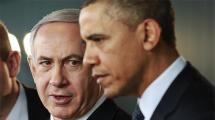Hundreds of thousands of gestating human babies descended on Washington, D.C. this morning in a March for our Birth event, delivering a resounding message that Washington’s inaction on abortion is a gross miscarriage of justice.
Building on the momentum of January’s Rally for Life, these members of a generation raised with rampant non-consensual termination have mobilized Americans with impassioned pleas for stricter abortion laws while honoring the 650,000 babies killed in 2014 by doctors and clinics everywhere.
“You can abort a mission, and you can abort a rocket launch, but you can’t abort a baby,” said future poet laureate Alice Jones, only three embryonic weeks old. “That’s why we came here today. To make our voices heard.”

Future poet laureate Alice Jones
“To the leaders, skeptics and cynics who told us to shut up and gestate, welcome to the revolution,” announced Andrew or Andrea Wilson, depending on if it’s a boy or a girl. “This is no time to get complacenta.”
Happy little accident Monique Weatherspoon, a seven-week-old embryo from Michigan, declared that she felt unsafe in the womb, and thought more security would help. “The uterus should absolutely be a safe space. A safe, gooey, amniotic space.”
The hoards marched up and down the National Mall carrying signs with messages from the mad to the macabre. “Planned Parenthood is a terrorist organization,” read one sensationalist sign. “Vacuums are for carpets,” stated another. Some signs displayed messages of hope and unity. One set of third-trimester twins carried a sign with the message, “Hope springs eternal, for our bond is fraternal.”
One popular prop held by many at the rally was a coat hanger bent into the shape of a heart. “We stand for love, not hate,” proclaimed one newly fertilized zygote. “If you support abortion, you are definitely pro-hate. You also probably don’t like puppies.”

Viable fetus Raul Sanchez
Though the protesters were united in calling for reform, there was some disagreement when it came to particular policies. Some demonstrators called for sensible abortion reform while others called for an outright ban. “We understand that doctors have the right to bear medical tools, but do they really need assault forceps?” asked viable fetus Raul Sanchez. Late-third-trimester representative James McDonald sang a more radical tune. “For all those mothers who are too afraid to carry us to term, be warned. We are at your cervix.”
Many notable celebrities performed on the Ultrasound Stage in front of the Capitol building to show their support. The remaining members of Nirvana played select tracks from their third and final studio album, and Ben Folds mournfully sang his hit 1997 song “Brick”. “It was touching to hear so many beautiful songs in support of life,” said one tearful baby. “It definitely struck an umbilical chord.”
 love and support of my teachers and advisers, who encouraged me to work hard every day and reach my academic potential. The Perelman School is #1 on the US News and World Report’s list of pediatrics residencies, and I’m sure I’ve made (and will continue to make) my family and friends proud. Can’t wait to get through my residency and on to the next chapter of my life…you know we pediatricians have little patients hahahaha!”
love and support of my teachers and advisers, who encouraged me to work hard every day and reach my academic potential. The Perelman School is #1 on the US News and World Report’s list of pediatrics residencies, and I’m sure I’ve made (and will continue to make) my family and friends proud. Can’t wait to get through my residency and on to the next chapter of my life…you know we pediatricians have little patients hahahaha!” ong and hard journey, but today I became a member of the Robert Wood Johnson urology program. I hope this ejaculation of pleasure and thanks isn’t premature – I still need to fill out the paperwork – but I can safely say that this is the climax of my professional career! Thanks so much to my parents, friends, and everybody else who blew me in the right direction over the years. I owe this stroke of luck to you.”
ong and hard journey, but today I became a member of the Robert Wood Johnson urology program. I hope this ejaculation of pleasure and thanks isn’t premature – I still need to fill out the paperwork – but I can safely say that this is the climax of my professional career! Thanks so much to my parents, friends, and everybody else who blew me in the right direction over the years. I owe this stroke of luck to you.” never been rejected from anything in my life so it hurts a little, but I realize that Harvard is a decent program and that I still might learn something over the next few years. To all my fellow applicants who got accepted into U of Texas, congratulations. I’m really, really happy for you, and even though I didn’t get in I bear you no grudges. May the best abdominoplasty win!”
never been rejected from anything in my life so it hurts a little, but I realize that Harvard is a decent program and that I still might learn something over the next few years. To all my fellow applicants who got accepted into U of Texas, congratulations. I’m really, really happy for you, and even though I didn’t get in I bear you no grudges. May the best abdominoplasty win!” so, so, so, so, so, so, so, so, so, so, so, so, so, so, so, so, so, so, so, so, so, so, so happy to announce that my AMAZING, TALENTED, CHARMING, PERFECT, WHITE, 6”1’, 180LBS, COULD HIT THE GYM MORE OFTEN BUT PLEASES ME PHYSICALLY, DOES THE DISHES CONSISTENTLY, GIVES ME NECK MASSAGES WHEN I CRY DURING THE BACHELOR, CAPTAIN OF HIS HIGH SCHOOL FOOTBALL TEAM, 37 HANDICAP, BRILLIANT, HARD WORKING, MAKES SPAGHETTI A LA CARBONARA SOMETIMES FOR DINNER, CRACKS UP WHEN I SAY THE WORD “FORK’, SS#: 257-61-0095, HAS NEVER CHEATED ON ME AND IF HE DID I WOULDN’T CARE BECAUSE HE’S MY husband who got into Memorial Sloan Kettering for Oncology!”
so, so, so, so, so, so, so, so, so, so, so, so, so, so, so, so, so, so, so, so, so, so, so happy to announce that my AMAZING, TALENTED, CHARMING, PERFECT, WHITE, 6”1’, 180LBS, COULD HIT THE GYM MORE OFTEN BUT PLEASES ME PHYSICALLY, DOES THE DISHES CONSISTENTLY, GIVES ME NECK MASSAGES WHEN I CRY DURING THE BACHELOR, CAPTAIN OF HIS HIGH SCHOOL FOOTBALL TEAM, 37 HANDICAP, BRILLIANT, HARD WORKING, MAKES SPAGHETTI A LA CARBONARA SOMETIMES FOR DINNER, CRACKS UP WHEN I SAY THE WORD “FORK’, SS#: 257-61-0095, HAS NEVER CHEATED ON ME AND IF HE DID I WOULDN’T CARE BECAUSE HE’S MY husband who got into Memorial Sloan Kettering for Oncology!”









 had, in fact, initially won Kanye’s affections. Kanye rejected that notion in an email to TMZ this afternoon: “No, man. It was never about Kim’s butt. It was her inner beauty…and her boobs. I don’t want people to think that I’m all about Kim for her butt. To be honest, I don’t even find it that sexy.”
had, in fact, initially won Kanye’s affections. Kanye rejected that notion in an email to TMZ this afternoon: “No, man. It was never about Kim’s butt. It was her inner beauty…and her boobs. I don’t want people to think that I’m all about Kim for her butt. To be honest, I don’t even find it that sexy.”





